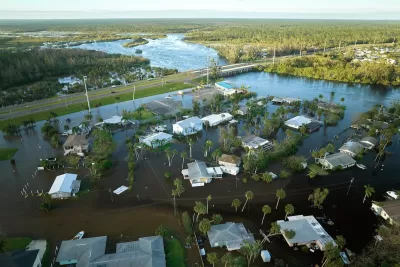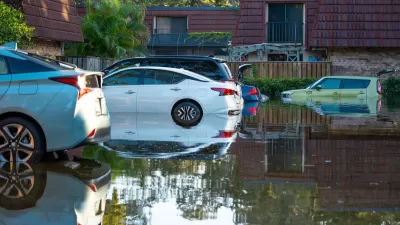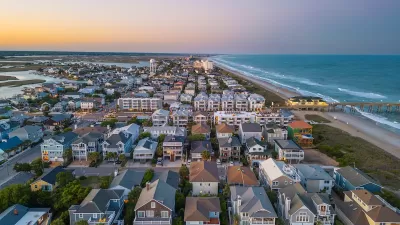People of color and lower-income residents tend to lose wealth despite the stated goals of federal assistance programs to restore communities impacted by disasters.

Research into the distribution of financial aid after climate disasters reveals that some of the nation’s most disadvantaged communities are often overlooked when it comes to disaster assistance resources, reports Amy Green for Inside Climate News.
“One 2018 study found that while white residents tend to gain affluence over time after a catastrophe, Blacks and other residents of color lose wealth. In counties where very little damage occurred between 1999 and 2013, researchers found that white residents gained an average of $26,000 in wealth but reaped nearly five times as much, about $126,000, in counties that suffered $10 billion in damage. By contrast, people of other races, who gained wealth in areas spared from significant damage, lost ground in hard-hit places. Black residents in damaged areas lost $27,000 in wealth, Latinos lost $29,000 and people of other races such as Asians lost $10,000.”
According to the same study, both public (FEMA) and private insurance programs are aimed at “restoring restoring property or wealth, an approach favoring those with more property and the ability to pay for insurance.” Lower-income residents impacted by climate disasters, meanwhile, suffer other related losses such as jobs and increased rents that assistance programs do not cover.
A 2020 report from the National Advisory Council recommended that FEMA create an “equity standard” to ensure its grants reach the communities that need them most. “ The document also suggested incorporating diversity, equity and inclusion into FEMA practices, recruiting an inclusive workforce and providing fair and equitable opportunities for professional advancement within the agency.” The agency is already incorporating some of these changes.
FULL STORY: After Disasters, Whites Gain Wealth, While People of Color Lose, Research Shows

Planetizen Federal Action Tracker
A weekly monitor of how Trump’s orders and actions are impacting planners and planning in America.

Map: Where Senate Republicans Want to Sell Your Public Lands
For public land advocates, the Senate Republicans’ proposal to sell millions of acres of public land in the West is “the biggest fight of their careers.”

Restaurant Patios Were a Pandemic Win — Why Were They so Hard to Keep?
Social distancing requirements and changes in travel patterns prompted cities to pilot new uses for street and sidewalk space. Then it got complicated.

Platform Pilsner: Vancouver Transit Agency Releases... a Beer?
TransLink will receive a portion of every sale of the four-pack.

Toronto Weighs Cheaper Transit, Parking Hikes for Major Events
Special event rates would take effect during large festivals, sports games and concerts to ‘discourage driving, manage congestion and free up space for transit.”

Berlin to Consider Car-Free Zone Larger Than Manhattan
The area bound by the 22-mile Ringbahn would still allow 12 uses of a private automobile per year per person, and several other exemptions.
Urban Design for Planners 1: Software Tools
This six-course series explores essential urban design concepts using open source software and equips planners with the tools they need to participate fully in the urban design process.
Planning for Universal Design
Learn the tools for implementing Universal Design in planning regulations.
Heyer Gruel & Associates PA
JM Goldson LLC
Custer County Colorado
City of Camden Redevelopment Agency
City of Astoria
Transportation Research & Education Center (TREC) at Portland State University
Camden Redevelopment Agency
City of Claremont
Municipality of Princeton (NJ)





























